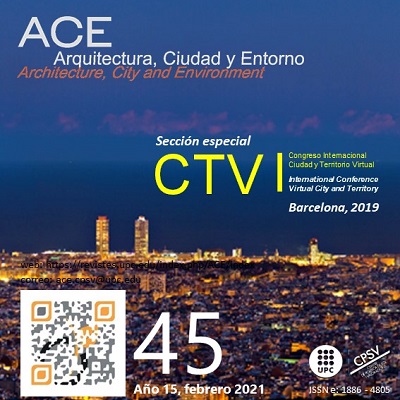City and Law: for the Recognition of the Human Right to the City
DOI:
https://doi.org/10.5821/ace.15.45.10370Keywords:
public space, glocal, sustainability, solidarityAbstract
Today, more than fifty percent of the world's population lives in cities, which are the meeting place of modern, innovative multiculturalism committed to its environment and unwilling to continue with the urban planning and excessive growth developed over the last few decades. This is how current social movements arise, calling for a right to the city as an emerging human right, based on the value of solidarity and participation of all, on the need to share a public space in which citizens and individuals can meet and build a city that promotes and protects the fundamental rights necessary for the development of an adequate life. In attention to this and through a strictly legal methodology, this study aims to determine the legal nature of the right to the city, for which the dialectic between the generations of rights and the new emerging rights will be addressed, analyzing the city and its right as a basic and fundamental right, especially through the theory of connectivity. In view of the results, there is only a soft law recognition of the claimed right to the city. However, through the connectivity of rights, it is possible to ensure that the right to the city possesses the same defining characteristics as first and second generation rights, so it can and should be recognized as a basic and transversal human right, where many other fundamental rights are developed and implemented. Nevertheless, its implementation cannot be achieved without paying attention to existing inequalities and without the collective participation of all affected entities. Therefore, it is necessary to continue advancing towards the implementation of new approaches that are more participatory, inclusive, innovative, and effective, from a glocal perspective (local and global) that allows the city to be configured as an indispensable space for the vital development of human beings and the rights that characterize.
Downloads
Published
Issue
Section
License
| INTELECTUAL PROTECTION CRITERIA |
At this moment, it is count with the "Oficina Española de Patentes y Marcas", while global protection it is being processed by the World Intelectual Property Organization (OMPI/WIPO). Nevertheless the International Standard Serial Number Office (ISSN) has given the following numbers ISSN: 1886-4805 (electronic version) and 1887-7052 (paper version). All articles will be peer reviewed, using double blind reviewing. |
| COPYRIGHT |
The article contents and their comments are authors exclusive liability, and do not reflect necessarily the journal editor commitee's opinion. All ACE published works are subject to the following licence CC BY-NC-ND 3.0 ES http://creativecommons.org/licenses/by-nc-nd/3.0/es/ It implies that authors do not hold nor retain the copyright without restrictions but only those included in the licence. |


































